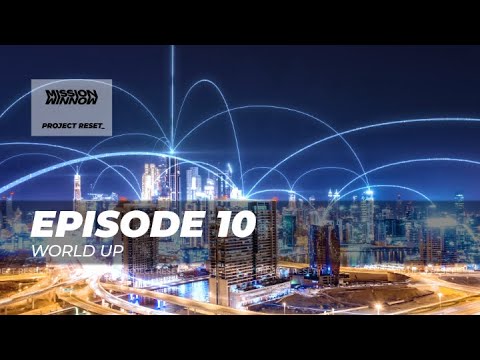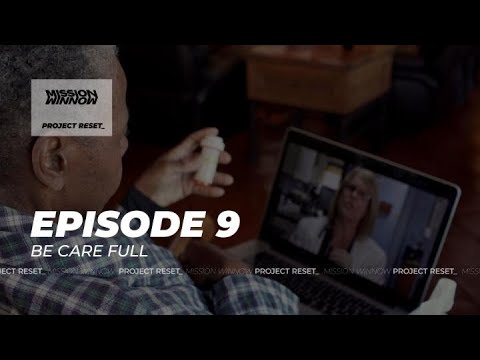Episode 9: Be Care Full
Is there an inextricable link between the economy and healthcare? We look at what drives the development of healthcare systems and consider what this time could mean for the future of our global health.

Produced 2020 | 1 Season | 10 Episodes | Video Podcast Articles
Is there an inextricable link between the economy and healthcare? We look at what drives the development of healthcare systems and consider what this time could mean for the future of our global health.
Is there an inextricable link between the economy and healthcare? We look at what drives the development of healthcare systems and consider what this time could mean for the future of our global health. Join the conversation and listen the full episode now!
To navigate this topic, our host June Sarpong talks with Nicholas Webb, Rumman Chowdhury and Dr. Pritpal S. Tamber.
As the world moves through a global health crisis, the issue of health care has been under the spotlight around the world. The hottest issue regards the level of preparation we had before Covid hit, and what we can learn from this for the future as more and more pandemics are predicted over time.
To discuss this, Project Reset’s June Sarpong welcomes healthcare futurist Nicholas Webb, Responsible AI’s Managing Director Rumman Chowdhury and Tedmed’s former physician editor Dr. Pritpal S Tamber in a panel that aims to understand what drives the development of the healthcare system and what its main goals are, whether personal care or profit.
First things first, however, let’s take a look at what do we mean when we say healthcare systems. According to Dr. Pritpal S Tamber there are three systems, and not all of them are properly acknowledged. The first is the Medical System, which includes hospitals, medical professionals and so on; the second is Public Healthcare System, which has been the most talked-about during this pandemic and is the one that tries to keep us healthy before we get sick and actually start needing the Medical System; and the third one, which is just as important, is the informal system of civil society, which is keeping each other healthy during everyday life.
So, when having a conversation about preparedness and the future of healthcare, we need to start thinking about what each of those layers needs to do and how well those layers interact with each other. It’s also important to look at systems from their historical perspective to identify when things started shifting towards the approach modern medicine has today.
For Nicholas Webb, it all started taking a turn for the worst when we started focusing on money and not on health care, because that’s when we shifted towards hyper-intervention and trying to find cross indicational uses, new surgeries, new diagnoses, etc. Nowadays, the medical system is not designed for preventative care, but rather to let diseases happen and then make money with treatments, especially when it comes to low-risk diseases, because as a pharmaceutical company it’s easier to make more money treating allergies, for example, as patients live much longer than those with fatal diseases.
Additionally, according to Rumman Chowdhury, the situation worsens because modern society has all these technological innovations at its disposal and uses them to prop up and reinforce the existing failing institutions we have today, instead of aiming towards a radical reimagination. And what’s worse, even if they wanted to, most healthcare entities don’t have the level of technological acumen to develop some necessary technologies, which means they have to rely on private companies which are then handling our data.
However, there is a silver lining. Consumerization is driving massive change in the way people access healthcare and thanks to Covid, practices like telehealth have seen a surge in demand.
This is especially beneficial for certain communities, like rural communities, and for the optimization of time for both patients and doctors. And while it can be argued that while the technology that is designed to bring us closer, can also distance humanity from each other by not being able to display subtle shifts in body language that are fundamental, especially in medicine, it’s also important to note that for some it has allowed them to be closer to their medical providers than ever before.
So how can we approach the future? Optimistically, by understanding that medicine and science are evolving processes and we have amazing tools at our fingertips to make systems that are fairer and more accessible.
Project RESET_

Across our Project Reset series, we have asked what the future could look like if we take these past few months of adversity as an opportunity to make positive changes, tackling everything from healthcare, to social media, mental health, consumerism, sports and entertainment with the help of experts in their field.
Project RESET_

As the world moves through a global health crisis, the issue of health care has been under the spotlight around the world.
Project RESET_

The global pandemic has shed a light on the precarious state of our global supply chain.